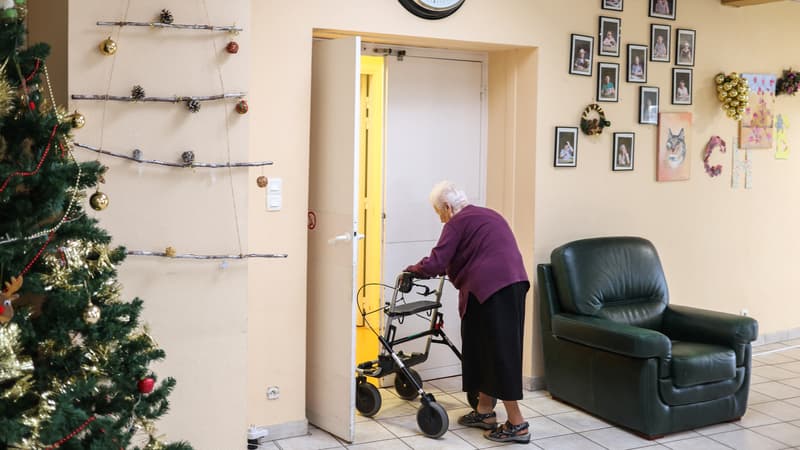Accommodation establishments for dependent elderly people (Ehpad) are not adapted to the rapid change in the profile of residents who increasingly have cognitive disorders such as Alzheimer’s, estimates an Igas report published this Tuesday.
Alzheimer’s disease and the cognitive, psychological and behavioral disorders associated with it, sometimes serious, represent a major public health problem, recalls this report from the General Inspectorate of Social Affairs. In fact, 1.2 million people are directly affected in France today, including more than one in three people over the age of 90, and almost double the number expected in 2050.
Now, the majority of nursing home residents have Alzheimer’s disease or a related disease, and this proportion will increase in the coming years, the report adds.
Although support systems have been developed, such as the Adapted Care and Activity Centers (PASA), the Cognitive-Behavioral Units (UCC) or the Specialized Alzheimer’s Teams (ESA) with people residing at home, the offer continues being insufficient, continue.
No device in almost half of the establishments
Thus, only 50,000 people can benefit from ESA services each year, that is, less than 5% of the total number of people with Alzheimer’s disease or a related disease.
In addition, a large part of the territory is not covered, hence the long waiting lists. Finally, the services offered by the PREPAs do not allow them to respond to patients whose situation is too degraded.
Almost half of the nursing homes would not have any device present in the establishment, says the Igas report, which recommends a global transformation of all establishments to adapt them to the significant arrival of people with Alzheimer’s disease.
Among its recommendations, the mission suggests strengthening the effective on-site presence of gerontological care assistants (ASGs) at night in nursing homes and implement, with appropriate support from directors.
Source: BFM TV


